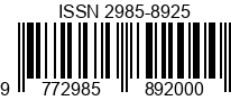Childfree Perspektif Quraish Shihab: Analisis Tafsir Al-Mishbah terhadap QS. Al-Baqarah Ayat 233
DOI:
https://doi.org/10.54298/tarunalaw.v3i02.452Keywords:
Childfree, Quraish Shihab, Tafsir al-Mishbah, QS. Al-Baqarah: 233, Maqāṣid al-Sharī‘ahAbstract
The phenomenon of childfree as a conscious decision not to have children has become a growing issue in modern society, including among Indonesian Muslims. This study aims to examine M. Quraish Shihab's perspective on the concept of childfree through an analysis of QS. Al-Baqarah verse 233 in the Tafsir Al-Mishbah. The research employs a qualitative method using a thematic exegesis (maudhu‘i) approach and content analysis. The primary source is Tafsir Al-Mishbah, supported by relevant secondary literature. The results indicate that QS. Al-Baqarah verse 233 emphasizes the significance of children's presence in marriage as a trust and as part of the Islamic legal objective (maqāṣid al-sharī‘ah), particularly in preserving lineage (ḥifẓ al-nasl). According to Quraish Shihab, both mother and father share responsibilities in breastfeeding and financial support to ensure a child's optimal growth. A permanent decision to remain childfree, especially without a legitimate religious reason, contradicts these core Islamic principles. This study concludes that the childfree choice must be critically examined and should not disregard the spiritual and social responsibilities inherent in the Islamic family institution.
References
Aanardianto. “Pandangan Childfree Menyelisihi Sunnatullah Dan Konsep Keluarga Sakinah.” Muhammadiyah, 2023.
Al-Mahali, Imam Jalaluddin, and Imam Jalaluddin As-Suyuti. Kitab Tafsir Al Jalalain Jilid 1. Bandung: Sinar Baru Algensindo, 1990.
Ana Rita Dahnia, Anis Wahda Fadilla Adsana, and Yohanna Meilani Putri. “Fenomena Childfree Sebagai Budaya Masyarakat Kontemporer Indonesia Dari Perspektif Teori Feminis (Analisis Pengikut Media Sosial Childfree).” Al Yazidiy Jurnal Sosial Humaniora Dan Pendidikan 5, no. 1 (2023): 66–85. https://doi.org/10.55606/ay.v5i1.276.
Asmaret, Desi. “Dampak Child Free Terhadap Ketahanan Keluarga Di Indonesia.” Adhki: Journal of Islamic Family Law 5, no. 1 (2023): 73–89. https://doi.org/10.37876/adhki.v5i1.108.
Asmuni, and Nispul Khoiri. FIQH KONTEMPORER. Medan: Wal Ashri Publishing, 2017.
Daulae, Tatta Herawati. “Kewajiban Orang Tua Terhadap Anak (Kajian Menurut Hadis).” Jurnal Kajian Gender Dan Anak 04, no. 2 (2020): 98–111.
Fadhilah, Eva. “Childfree Dalam Pandangan Islam.” Al-Mawarid Jurnal Syariah Dan Hukum (JSYH) 3, no. 2 (2022): 71–80. https://doi.org/10.20885/mawarid.vol3.iss2.art1.
Fahimah, Iim. “Kewajiban Orang Tua Terhadap Anak Dalam Perspektif Islam.” Jurnal Hawa 1, no. 1 (2019): 36–45. https://doi.org/10.29300/hawapsga.v1i1.2228.
Fajriyani, Nur. “CHILDFREE PERSPEKTIF TAFSIR AL-MISHBAH: ANALISIS QS. Al-NAHL(16) AYAT 72.” Jurnal Studi Islam 12, no. 1 (2023): 82–98. https://doi.org/10.33477/jsi.v12i1.5260.
Fithoroini, Dayan. “Perkawinan Childfree Perspektif Maqashid Al-Syari’ah Imam Syatibi Dalam Kitab Al-Muwafaqat Fii Usul Al- Ahkam.” Justicia Religia: Jurnal Hukum Islam 1, no. 1 (2023): 1–9.
Habibi, Jk, Khoirul Ma’arif, Adji Pratama Putra, and Agung Burhanusyihab. “Perkawinan Childfree Dalam Perspektif Hukum Islam.” Transformatif 7, no. 2 (2023). https://doi.org/10.23971/tf.v7i2.5903.
Haq, Nashirul. “Ketua MUI: Jauhi Childfree, Ayo Punya Anak Yang Berkualitas.” Hidayatullah.Com, 2023.
Harun, Mohd, B I N Esa, Program Studi, Jinayah Siyasah, Universitas Islam, and Negeri Syarif. “Hukum Menggugurkan Kandungan Dan Penggunaan Alat Kontrasepsi.” Jurnal Qolamuna 1, no. 1 (2015): 73.
Jenuri, Mohammad Rindu Fajar Islamy, Kokom Siti Komariah, Dina Mayadiana Suwarma, and Adila Hafidzani Nur Fitria. “Fenomena Childfree Di Era Modern: Studi Fenomenologis Generasi Gen Z Serta Pandangan Islam Terhadap Childfree Di Indonesia.” Sosial Budaya 19, no. 2 (2022): 81–89.
Kemenag, RI. AL-QUR’AN DAN TERJEMAHNYA. Kementrian Agama. Lajnah Pentashihan Mushaf Al-Qur’an, 2019.
———. Tasir Ringkasan Al- Qur’an Al- Karim Jilid I. Lajnah Pentashihan Mushaf Al-Qur’an, 2016.
Malisi, Ali Sibra. “Pernikahan Dalam Islam.” SEIKAT: Jurnal Ilmu Sosial, Politik Dan Hukum 1, no. 1 (2022): 22–28. https://doi.org/10.55681/seikat.v1i1.97.
Munawarudin, Asep. “Childfree Dalam Pandangan Maqashid Syariah.” Jurnal Hukum Dan Hukum Islam Yustisi 10, no. 2 (2023): 119–37.
Muntaha, Ahmad. “Kupas Tuntas Childfree Dalam Islam: Hukum Asal, Motif, Hingga Rambu-Rambu Di Dalamnya.” Nuonline, 2021. https://www.nu.or.id/lapsus/kupas-tuntas-childfree-dalam-islam-hukum-asal-motif-hingga-rambu-rambu-di-dalamnya-YTVCE#.
Nikma, Arsyatul. “Fenomena Childfree Di Indonesia Dari Perspektif Mahasiswa Kebidanan Universitas Airlangga Surabaya.” Jurnal Kajian Gender Dan Anak 8, no. 1 (2024): 41–63.
Nurliana, Nurliana. “Pernikahan Dalam Islam Antara Ibadah Dan Kesehatan Menuju Keselamatan.” Al-Mutharahah: Jurnal Penelitian Dan Kajian Sosial Keagamaan 19, no. 1 (2022): 39–49. https://doi.org/10.46781/al-mutharahah.v19i1.397.
Rahman, Desi, Alya Syahwa Fitria, Dhea Anisa Lutfiyanti, Ilyasa Irfan M R, Shakira Mauludy Putri Fadillah, and Muhamad Parhan. “Childfree Dalam Perspektif Islam: Solusi Atau Kontroversi?” Jurnal Wanita Dan Keluarga 4, no. 1 (2023): 1–14. https://doi.org/10.22146/jwk.7964.
Rasyidin, and Putri Indah Lestari. “Konsep Keluarga Sakinah Pasangan Tidak Memiliki Keturunan Di Kota Langsa Aceh.” El-Ahli : Jurnal Hukum Keluarga Islam 3, no. 2 (2022): 143–60. https://doi.org/10.56874/el-ahli.v3i2.983.
Shihab, M. Quraish. Tafsir Al-Mishbah Volume 1. Jakarta : Lentera Hati. Jakarta: Lentera Hati, 2005.
Singgani, Alfa, Adam, and M. Taufan. “Hakikat Tujuan Pernikahan Dalam Pandangan Hukum Islam.” Prosiding Kajian Islam Dan Integrasi Ilmu Di Era Society 5.0 3 (2024): 194–97.
Yusuf, Muhammad Suaidi, Habibatus Shofia, and Muhammad Hilmi Ulwan. “Kewajiban Orang Tua Dalam Pendidikan Anak Ketika Masa Penyusuan Perspektif Al-Qur`an (Studi Tafsir Surat Al-Baqarah Ayat 233).” Jurnal Teknologi Pendidikan 10, no. 2 (2021): 1–61.
Downloads
Published
How to Cite
Issue
Section
License
Copyright (c) 2025 Tegar Daffa Al Firdaus, Bunga Septia Nurul Fatikhah, Al Dafa Nurrohman, Pupung Budi Kurniawan

This work is licensed under a Creative Commons Attribution-ShareAlike 4.0 International License.
Authors who publish with this journal agree to the following terms:
- Authors retain copyright and grant the journal right of first publication with the work simultaneously licensed under a Creative Commons Attribution-ShareAlike that allows others to share the work with an acknowledgement of the work's authorship and initial publication in this journal.
- Authors are able to enter into separate, additional contractual arrangements for the non-exclusive distribution of the journal's published version of the work (e.g., post it to an institutional repository or publish it in a book), with an acknowledgement of its initial publication in this journal.
- Authors are permitted and encouraged to post their work online (e.g., in institutional repositories or on their website) prior to and during the submission process, as it can lead to productive exchanges, as well as earlier and greater citation of published work (See The Effect of Open Access).














